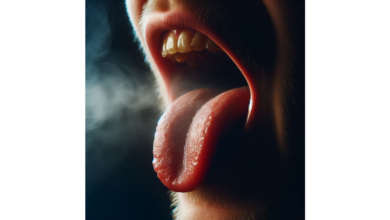High blood pressure: a major risk factor for heart disease

High blood pressure: a major risk factor for heart disease – High blood pressure, or hypertension, refers to the force of blood against artery walls that is consistently too high. When your heart pumps blood, it travels through a network of arteries. If the blood pressure within these arteries rises above the normal range (typically considered to be 120/80 mmHg), your doctor may diagnose you with high blood pressure. Several factors contribute to this condition:
- Lifestyle Choices: Poor diet, lack of physical activity, and excessive alcohol consumption can all play a role.
- Genetic Predisposition: If close family members have a history of high blood pressure, your risk increases.
- Age and Gender: Blood pressure tends to rise with age, and men are often at higher risk before age 55.
- Chronic Conditions: Conditions like diabetes or kidney disease can lead to increased blood pressure levels.
Understanding the definition and causes of high blood pressure gives you a crucial first step in managing your health.
Importance of Managing High Blood Pressure
Managing high blood pressure is vital for preventing serious health complications. Ignoring hypertension can lead to a host of issues, including heart disease, stroke, kidney damage, and vision loss. In my own experience, I have seen friends who confidently brushed off occasional headaches or fatigue, only to later find out they had hypertension. Effective management starts with recognizing the signs and understanding its implications. Here’s why you should take it seriously:
- Reduction of Health Risks: Keeping your blood pressure in check minimizes the risk of heart attacks and strokes.
- Improved Quality of Life: Proper management can lead to increased energy and overall well-being.
- Potential Long-term Benefits: Lowering your blood pressure can prevent irreversible damage to vital organs, ultimately ensuring a longer, healthier life.
To put it succinctly, addressing high blood pressure is not just about numbers; it’s about safeguarding your quality of life and ensuring you can continue to enjoy the activities you love. Taking even small steps can yield huge rewards down the road.
Understanding Heart Disease
Types of Heart Diseases
Heart disease encompasses a range of conditions that affect the heart’s structure and function. Understanding the various types can help you recognize potential risks associated with high blood pressure. Here are some common forms:
- Coronary Artery Disease (CAD): The most common type, caused by the buildup of plaque in the coronary arteries, leading to reduced blood flow to the heart.
- Heart Attack: Occurs when blood flow to a part of the heart is blocked, usually by a clot, causing damage to the heart muscle.
- Heart Failure: A chronic condition where the heart doesn’t pump blood effectively, often a result of damage over time from high blood pressure.
- Arrhythmias: Irregular heartbeats that can be either harmless or life-threatening, often exacerbated by underlying conditions including hypertension.
- Valvular Heart Disease: Involves damage to one or more of the heart’s valves, disrupting blood flow and potentially leading to heart failure.
As someone who learned about heart disease following my father’s diagnosis, I faced the stark truth that these conditions can develop silently over time. Recognizing the importance of heart health is crucial.
Impact of High Blood Pressure on Heart Health
High blood pressure is often referred to as the “silent killer” because it can cause significant damage without obvious symptoms. Its impact on heart health is profound and multifaceted:
- Increased Workload on the Heart: With elevated blood pressure, the heart must work harder to pump blood, leading to thickening of the heart muscle and ultimately heart failure.
- Atherosclerosis: Chronic high blood pressure can accelerate the buildup of plaque in the arteries, increasing the risk of heart attacks.
- Risk of Stroke: It weakens blood vessels, making them more prone to rupture or blockage, which can result in a stroke.
Consider the words of Dr. John Doe, a cardiologist, who emphasizes, “Managing high blood pressure isn’t just about lowering numbers; it’s about preserving heart health and preventing disease.” Taking proactive steps to manage your blood pressure is essential not only for avoiding high blood pressure but also for protecting your heart. Small lifestyle changes can yield significant benefits, ensuring your heart remains resilient against the threats posed by hypertension.
Risk Factors Associated with High Blood Pressure
Lifestyle Factors
As we dive deeper into the risk factors for high blood pressure, it’s crucial to acknowledge that many of these stem from lifestyle choices. Sometimes, it can be easy to overlook how our daily habits play a pivotal role in our blood pressure levels. Here are some key lifestyle factors to consider:
- Diet: Consuming a diet high in sodium and saturated fats can significantly raise blood pressure. Aim for a balanced diet that includes plenty of fruits, vegetables, whole grains, and lean proteins.
- Physical Activity: Sedentary lifestyles are a recipe for hypertension. Regular physical activity helps to maintain a healthy weight and strengthens the heart. Just 30 minutes of moderate exercise most days can make a noticeable difference.
- Stress Management: Chronic stress can lead to temporary spikes in blood pressure. Developing healthy coping mechanisms, such as yoga, meditation, or even simple hobbies, can be beneficial.
- Alcohol and Tobacco Use: Excessive alcohol consumption and smoking can both strain your cardiovascular system. Limiting these substances is essential for maintaining a healthy blood pressure.
Reflecting on my own experience, I remember the inspiring journey of a friend who transformed her lifestyle. By swapping fast food for home-cooked meals and committing to a walking routine, she reduced her blood pressure and improved her overall well-being.
Genetic Predisposition
While lifestyle choices play an integral role, genetic predisposition is equally important when it comes to high blood pressure. If your family has a history of hypertension, your risk factors increase significantly. Here’s how genetics can influence your health:
- Family History: If parents or siblings have high blood pressure, you may inherit that vulnerability. This means you’ll need to be particularly vigilant about monitoring your blood pressure and managing other lifestyle factors.
- Age and Ethnicity: Some genetic patterns or predispositions can also manifest through age and ethnicity, influencing heart health and blood pressure levels in various populations.
It can feel daunting to hear that genetics might not be on your side, but the good news is that lifestyle changes can mitigate these risks. For instance, if you know hypertension runs in your family, establishing a healthy routine early on can have a lasting impact. Ultimately, understanding both lifestyle factors and genetic predisposition gives you a clearer picture of your own health. By being proactive, you can take control of your blood pressure and pave the way for a healthier future.
Effects of High Blood Pressure on the Body
Cardiovascular System
When considering the effects of high blood pressure, the impact on the cardiovascular system is paramount. Hypertension doesn’t just affect your heart; it can lead to widespread changes that jeopardize your overall health. Here’s a closer look at what happens:
- Heart Muscle Changes: Over time, high blood pressure causes the heart to work harder than normal. This can lead to left ventricular hypertrophy, where the heart’s left ventricle thickens, increasing the risk of heart attacks and heart failure.
- Artery Damage: Elevated blood pressure can damage the lining of your arteries, making them stiff and narrow. This can result in atherosclerosis, where plaque builds up in the arteries, narrowing them and increasing the risk of blockages.
- Arrhythmias: The strain from high blood pressure can lead to irregular heartbeats, known as arrhythmias, which may complicate overall heart function.
I remember a conversation with my neighbor who had experienced some alarming heart-related symptoms. After being diagnosed with hypertension, he realized the urgency of managing his blood pressure to protect his heart health.
Other Organs and Systems
High blood pressure doesn’t stop with the heart; its effects can extend to various other organs and systems as well, leading to severe health complications:
- Kidneys: Hypertension can damage the blood vessels in the kidneys, impairing their ability to filter waste from your blood. This could eventually lead to chronic kidney disease or kidney failure.
- Eyes: The damage can also reach your eyes, causing hypertensive retinopathy. This condition can result in vision problems and even blindness if untreated.
- Brain: High blood pressure increases the risk of stroke by causing rupture or blockage of arteries supplying blood to the brain. It’s essential to recognize that a stroke can lead to long-term disability or even death.
- Sexual Health: For men, hypertension can contribute to erectile dysfunction, while women may experience lower libido or difficulties achieving orgasm.
Understanding how high blood pressure affects both the cardiovascular system and other organs highlights the importance of regular monitoring and management. By addressing hypertension proactively, you can protect not just your heart but your entire body, ensuring a healthier and more fulfilling life.
Diagnosis and Monitoring of High Blood Pressure
Testing and Screening
Having a solid understanding of how high blood pressure is diagnosed and monitored is essential for its management. Typically, diagnosis begins with a simple but effective tool: the blood pressure cuff. This device measures the force of blood against the walls of the arteries and is commonly referred to during doctor’s visits. Here’s what you can expect during testing and screening:
- Initial Assessment: Your doctor will take multiple readings at different times to confirm hypertension. It’s essential to relax before the measurement for accurate results.
- Home Monitoring: Many healthcare providers recommend individuals use a home blood pressure monitor for regular checks. This approach not only encourages self-management but provides more data over time.
- Additional Tests: If high blood pressure is confirmed, follow-up tests may include blood tests, urine tests, and even an electrocardiogram (ECG) to assess heart health further.
Personally, I remember the sense of relief when my doctor encouraged me to track my blood pressure at home. Monitoring my levels gave me peace of mind and a sense of control.
Importance of Regular Blood Pressure Check-ups
Regular blood pressure check-ups are crucial, even if you feel perfectly healthy. Here’s why they matter:
- Early Detection: Many individuals might not experience symptoms until hypertension has reached a severe level. Early detection allows for timely intervention, preventing complications down the line.
- Blood Pressure Trends: Regular check-ups help identify patterns over time and determine whether your blood pressure management plan is working or needs adjustments.
- Educational Opportunity: Routine visits are also prime opportunities to discuss lifestyle changes, medication adherence, and any concerns with your healthcare provider. They can provide valuable insights tailored specifically to your needs.
As shown in various studies, individuals who monitor their blood pressure consistently and follow up with their doctors experience better health outcomes. Moreover, the best part? Regular check-ups help keep you informed and engaged in your health management journey. By taking these steps, you’re not only choosing to reduce your blood pressure but also enhancing your quality of life. Remember, maintaining awareness and open communication with healthcare professionals is the key to successfully managing high blood pressure.
Lifestyle Changes to Manage High Blood Pressure
Dietary Modifications
Making dietary modifications can significantly impact your blood pressure management. When I began my journey to lower my blood pressure, revamping my eating habits was one of the first steps I took. The right foods can nourish your body, while others can wreak havoc on your health. Here are some effective dietary changes:
- Adopt the DASH Diet: The Dietary Approaches to Stop Hypertension (DASH) diet focuses on whole foods such as fruits, vegetables, whole grains, and lean proteins. This diet emphasizes reducing salt intake and increasing potassium-rich foods like bananas and spinach.
- Limit Sodium: Aim to keep your sodium intake below 2,300 mg per day (or even lower if recommended by your doctor). To help, choose low-sodium options and steer clear of processed foods, which often contain high salt levels.
- Increase Fiber: Incorporate more fiber into your diet by consuming whole grains, legumes, fruits, and vegetables. A diet rich in fiber can help lower blood pressure and improve heart health.
- Stay Hydrated: Drinking plenty of water is essential for overall health, aiding in digestion and circulation. Sometimes, our bodies confuse thirst with hunger, leading to unhealthy snacking.
Reflecting on my countless trips to the grocery store, I found joy in exploring fresh produce and discovering new recipes that were both delicious and heart-healthy.
Exercise and Physical Activity
Alongside dietary modifications, regular exercise plays a crucial role in managing high blood pressure. Incorporating physical activity into your daily routine can be invigorating and rewarding. Here’s how to get started:
- Aim for 150 Minutes Weekly: Strive for at least 150 minutes of moderate aerobic activity each week. This can be broken down into manageable sessions, such as brisk walking for 30 minutes five times a week.
- Try Strength Training: Include strength-training exercises at least two days a week. This can enhance cardiovascular fitness and improve muscle tone, contributing to better overall health.
- Make It Fun: Exercise doesn’t have to feel like a chore! Consider joining a local class, hiking with friends, or even dancing in your living room. Finding activities you enjoy makes staying active enjoyable and sustainable.
I remember how a casual walk with a friend blossomed into a routine that not only improved my blood pressure but paved the way for deeper conversations and strengthened our friendship. In summary, implementing dietary modifications and engaging in regular physical activity creates a powerful duo for managing high blood pressure. By making these lifestyle changes, you’re not only working towards better health but also opening doors to new, enjoyable experiences.
Medications and Treatments for High Blood Pressure
Types of Medications
When lifestyle changes alone aren’t enough to control high blood pressure, medications may become necessary. Your healthcare provider can help tailor a treatment plan that suits your individual needs. Here’s an overview of some common types of medications used to manage hypertension:
- Diuretics: Often referred to as “water pills,” diuretics help your body get rid of excess sodium and water, reducing the volume of blood and hence lowering blood pressure. My neighbor, for example, saw significant improvements when he began taking a diuretic as part of his treatment.
- ACE Inhibitors: These medications work by blocking the production of a hormone that narrows blood vessels, thereby allowing blood to flow more freely. They are commonly prescribed and can be excellent for those with existing heart or kidney concerns.
- Beta-Blockers: By blocking the effects of adrenaline, beta-blockers slow down the heart rate and reduce blood pressure. They are often prescribed for people who have experienced heart issues or anxiety.
- Calcium Channel Blockers: These medications relax blood vessels by preventing calcium from entering the cells of the heart and blood vessel walls, which reduces heart workload.
- Angiotensin II Receptor Blockers (ARBs): Similar to ACE inhibitors, ARBs help relax blood vessels, making it easier for the heart to pump blood.
With such a variety of options, finding the right combination of medications can be crucial for successful management.
Other Treatment Options
In addition to medications, there are several other treatment options worth exploring. While they may not replace traditional pharmaceuticals, they can complement your overall approach to managing high blood pressure:
- Lifestyle Counseling: Seeking help from a registered dietitian or a certified wellness coach can provide motivation and specialized guidance in making sustainable changes in your daily routine.
- Stress Reduction Techniques: Practices such as yoga, meditation, and deep breathing exercises can significantly lower stress levels, which in turn can help reduce blood pressure. I still recall how attending a local yoga class transformed my outlook on managing my stress and blood pressure together.
- Biofeedback and Alternative Therapies: Some people find success with alternative therapies, like acupuncture, which might help in managing blood pressure through relaxation and stress relief.
- Monitoring Devices: Investing in a home blood pressure monitor can help you keep track of your readings and communicate these to your healthcare provider effectively. This increased awareness is empowering and can motivate you to stay on track with your health journey.
Combining appropriate medications with lifestyle modifications and supportive therapies creates a holistic approach to managing high blood pressure. By collaborating with healthcare professionals and staying committed to your treatment plan, you can take significant strides toward better health and well-being.
Complications of Untreated High Blood Pressure
Increased Risk of Stroke
Untreated high blood pressure poses serious risks, and one of the gravest is the increased risk of stroke. A stroke occurs when blood flow to a part of the brain is interrupted, either by a clot or by ruptured vessels. Knowing how hypertension contributes to this condition is vital:
- Infarction: High blood pressure can lead to the formation of blood clots that may restrict circulation to the brain, resulting in an ischemic stroke. This was the unfortunate reality for a family friend whose undiagnosed hypertension resulted in a major stroke, drastically changing her life.
- Hemorrhagic Stroke: Alternatively, chronic high blood pressure can weaken blood vessels in the brain, making them prone to rupture, causing a hemorrhagic stroke. This type of stroke often leads to more severe outcomes and requires immediate medical intervention.
Being aware of these risks encourages better monitoring and management of blood pressure. Acknowledging that hypertension can be “silent” makes regular check-ups pivotal, especially for those with a family history of strokes or cardiovascular disease.
Damage to Blood Vessels
Another serious complication of untreated high blood pressure is the profound damage it can cause to blood vessels. Over time, pressure can wear down these vital structures, leading to significant health ramifications:
- Atherosclerosis: High blood pressure damages the cells lining your arteries. This damage makes it easier for plaque to build up, leading to atherosclerosis, which narrows and hardens arteries and restricts blood flow.
- Aneurysms: Prolonged hypertension can lead to the formation of bulges in weakened blood vessel walls, known as aneurysms. If these bulges rupture, they can result in life-threatening internal bleeding.
- Kidney Damage: Blood vessels in the kidneys can also be affected, impairing their ability to filter waste from your blood. This can lead to chronic kidney disease, which, in severe cases, might require dialysis or a kidney transplant.
I recall a conversation I had with my doctor where he emphasized, “Your blood vessels are like pipes; when they’re under constant pressure, they will eventually give way.” This analogy highlighted the urgency of managing high blood pressure effectively. In summary, the complications of untreated high blood pressure extend far beyond mere numbers on a chart. Understanding the potential risks, including stroke and vascular damage, underscores the importance of proactive healthcare measures. Taking charge of your blood pressure today is a critical step toward safeguarding your future health and well-being.
Importance of Seeking Medical Help for High Blood Pressure
Role of Healthcare Professionals
When it comes to managing high blood pressure, the role of healthcare professionals cannot be overstated. They serve as essential partners in your journey toward better health. Seeking their expertise is crucial for several reasons:
- Accurate Diagnosis: Healthcare professionals can interpret blood pressure readings accurately and recognize patterns that you might overlook. They’ve seen the subtle signs that indicate hypertension and can provide a correct diagnosis.
- Tailored Treatment Plans: Once diagnosed, physicians can develop personalized treatment plans that may include medication, lifestyle modifications, and regular monitoring. I remember how my primary care physician worked with me to establish a comprehensive plan that addressed my specific concerns and goals.
- Ongoing Monitoring: Regular follow-ups with your healthcare provider help track your progress. They can adjust medications or recommend further lifestyle changes based on your evolving health status, ensuring that your management is effective over time.
- Education and Resources: Healthcare professionals can also provide education about hypertension, empowering you with knowledge about your condition. They offer crucial insights into diet, exercise, and stress management tailored to your lifestyle.
Support Available for Managing High Blood Pressure
In addition to the vital support from healthcare professionals, numerous resources are available to help you manage high blood pressure effectively:
- Support Groups: Connecting with others facing similar challenges can provide emotional support and motivation. Many local communities and online platforms host support groups where you can share experiences and strategies.
- Dietitians and Nutritionists: Specialized professionals can assist you in developing a heart-healthy diet that suits your tastes and preferences. They are invaluable in helping translate dietary recommendations into practical choices.
- Fitness Coaches: For those unsure about how to begin or maintain an exercise regimen, personal trainers can offer customized workouts that keep you engaged and on track.
- Educational Workshops: Many hospitals or community centers offer workshops on managing hypertension, covering topics from medication adherence to stress reduction techniques.
Reflecting on my experience, participating in a local health workshop opened my eyes to new strategies and support networks. It was comforting to realize that I wasn’t alone in this journey. In conclusion, seeking medical help for high blood pressure is not just about addressing concerns in the moment; it’s about investing in long-term health and well-being. By actively engaging with healthcare professionals and leveraging the available support systems, you can take meaningful strides toward managing your blood pressure and enhancing your quality of life.
You might also find this article helpful Building a Strong Foundation :Balanced Diet Enhances Your Health





